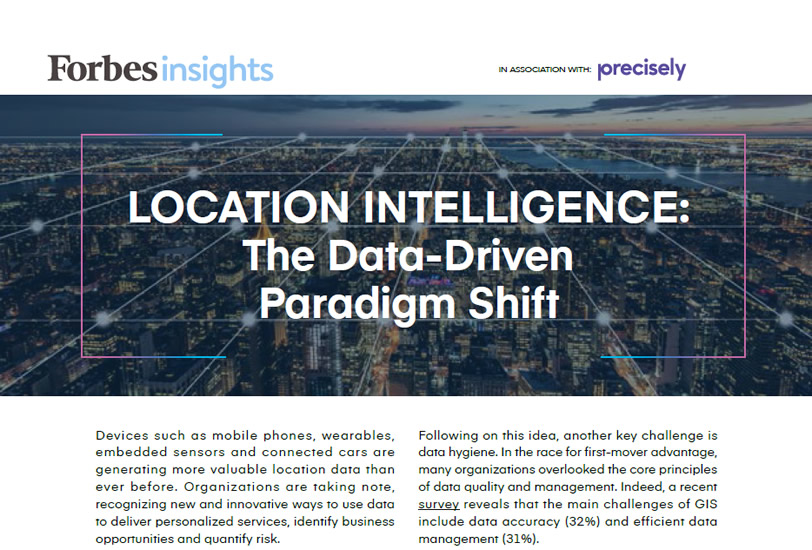Analyst Report
Location Intelligence: The Data-Driven Paradigm Shift
An increasing number of industries are discovering innovative applications for location intelligence
Devices such as mobile phones, wearables, embedded sensors and connected cars are generating more valuable location data than ever before. Organizations are taking note, recognizing new and innovative ways to use data and location intelligence to deliver personalized services, identify business opportunities and quantify risk.
But while a staggering 87% of organizations think that Geographic Information Systems (GIS) are an important function for their business, there are challenges. Part of the problem is access. For years, GIS has been the exclusive domain of mapping experts and government agencies. However, by democratizing location intelligence and delivering its unique insights into the hands of people beyond the GIS team, organizations can drive high-value, data-driven business insights to improve their business operations. The challenge is to move from being solely “map-centric” toward becoming “data-centric.”
Following on this idea, another key challenge is data hygiene. In the race for first-mover advantage, many organizations overlooked the core principles of data quality and management. Indeed, a recent survey reveals that the main challenges of GIS include data accuracy (32%) and efficient data management (31%).
Read on to learn how can organizations begin to use location data more effectively and transition from collecting location coordinates to achieving location intelligence?
